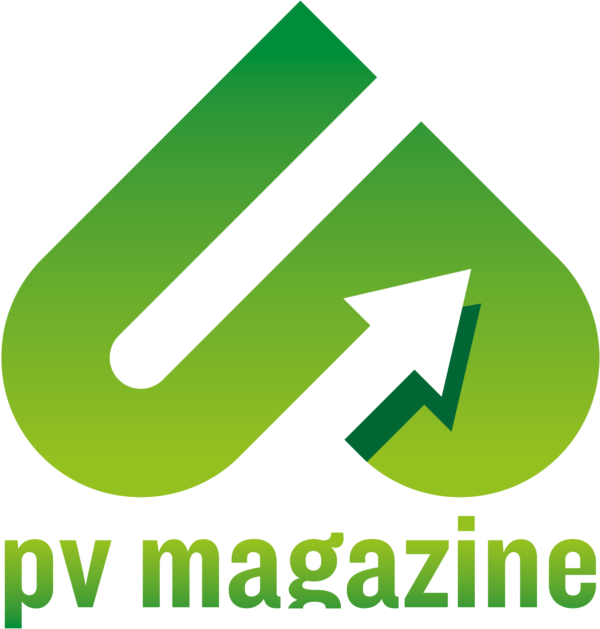 The next pv magazine UP Initiative quarterly theme is focusing on circular manufacturing. We are investigating if adopting circular approaches can create competitive edges and reap financial and reputational rewards. We’ll also look at what is already being done in the solar industry, and examine how such principles could be effectively integrated into business strategies.
The next pv magazine UP Initiative quarterly theme is focusing on circular manufacturing. We are investigating if adopting circular approaches can create competitive edges and reap financial and reputational rewards. We’ll also look at what is already being done in the solar industry, and examine how such principles could be effectively integrated into business strategies.
pv magazine 06/2020
Doughnuts are the new green: Presentation of the quarterly theme.
pv magazine 06/2020
‘We will need a solution’: Circusol’s five demonstration projects are providing insights into how circular-economy principles can be applied to PV.
Inverted sustainability: In the EU, a range of new projects and legislative acts determine the direction, with some suppliers of solar products already undergoing the process of identifying the sustainability hotspots.
pv magazine 07/2020
Making solar sizzle: What is circular manufacturing, why is it important, and how is it being applied in the solar and storage industries? pv magazine’s UP initiative investigates.
Older modules for reuse, not refuse: Faulty modules and failures can destroy a PV project’s economics. But the modules themselves should not be destroyed, argues Eszter Voroshazi, the R&D manager of photovoltaics and energy systems at imec. She believes that modules can find a useful second life in price-sensitive solar markets.
pv magazine 08/2020
Coming around: Given the number of batteries are required to decarbonize the power and mobility sectors, the industry is now preparing for a mountain of battery waste. Recycling is technically feasible, but is also subject to sensitive economics.
pv magazine 09/2020
Materials in the circular economy: A number of companies are now racing to find new materials to replace toxic or otherwise unsafe elements in PV modules, in pursuit of circular economic ideals. In a similar vein, many researchers are also looking for ways to recycle and reuse some of these materials at the end of solar panel lifetimes. In line with these efforts, artificial intelligence and machine learning now play a critical role in identifying new chemical footprints for PV modules and cells.
Beyond carbon blinders, deployment fever: He wrote the first book on sustainability in solar and has a second on the way. Dustin Mulvaney, a professor at San José State University, has been investigating sustainability in the solar sector and the wider energy transition for well over a decade. And by applying a broad definition of sustainability – beyond the environment to include social justice goals – he believes that the solar industry can avoid reputational risks.
New inverter design coming around: Circular economy approaches in the solar industry have hitherto largely pertained to modules and batteries. Inverters, meanwhile, haven’t been in focus as much. Although these devices stand for less than 20% of the overall footprint of PV, they also contain significant volumes of valuable or toxic raw materials. Designing such products with their lifespans in mind has therefore become a critical step for the solar industry.
pv magazine 06/2022
Data for circular solar: The increasing number of PV modules coming to end of life and being discarded is looming as a challenge to the industry. Researchers from the Bern University of Applied Sciences (BFH) are tackling the issue with data – developing a prototype of an asset database to facilitate reuse and recycling activities. Roger Nyffenegger, Ässia Boukhatmi, and Stefan Grösser report on how the project could pave the way for a mind shift towards a data-based circular PV industry.
Online
Designing circular solar modules: Amid a growing appetite for sustainability from customers, Lithuanian solar panel maker Solitek is applying circular principles to its production operations. Measures include embracing digitalization and new approaches to design. Project manager Tadas Radavičius has spoken to pv magazine about the company’s work and how Solitek is supporting European projects which are considering circular solar.
How a German startup aims to alleviate energy poverty with circular solar solutions: SunCrafter is a small German startup with a global ambition: to alleviate energy poverty by upcycling used solar PV modules. Having established an innovative business model, which sees it subsidizing its goals by meeting the infrastructure needs of big events and festivals, it has now partnered with EU-funded project Circusol to demonstrate the viability of circular renewables. pv magazine interviewed SunCrafter CEO and co-founder Lisa Wendzich as part of the UP initiative’s circular manufacturing quarterly theme.
Safely meeting demand for renewable energy with innovative material design for health and sustainability: Clean energy is critical to solving our climate crisis. But we need to consider the full environmental and human health impacts of solar energy generation across its entire lifecycle, including mining, manufacturing, use, decommissioning and recycling. This requires us to identify critical stages in the production process, and how choices in materials and chemicals at different stages of production influence each other.
Back to the UP Initiative feature page
This page was last updated on June 24, 2022.